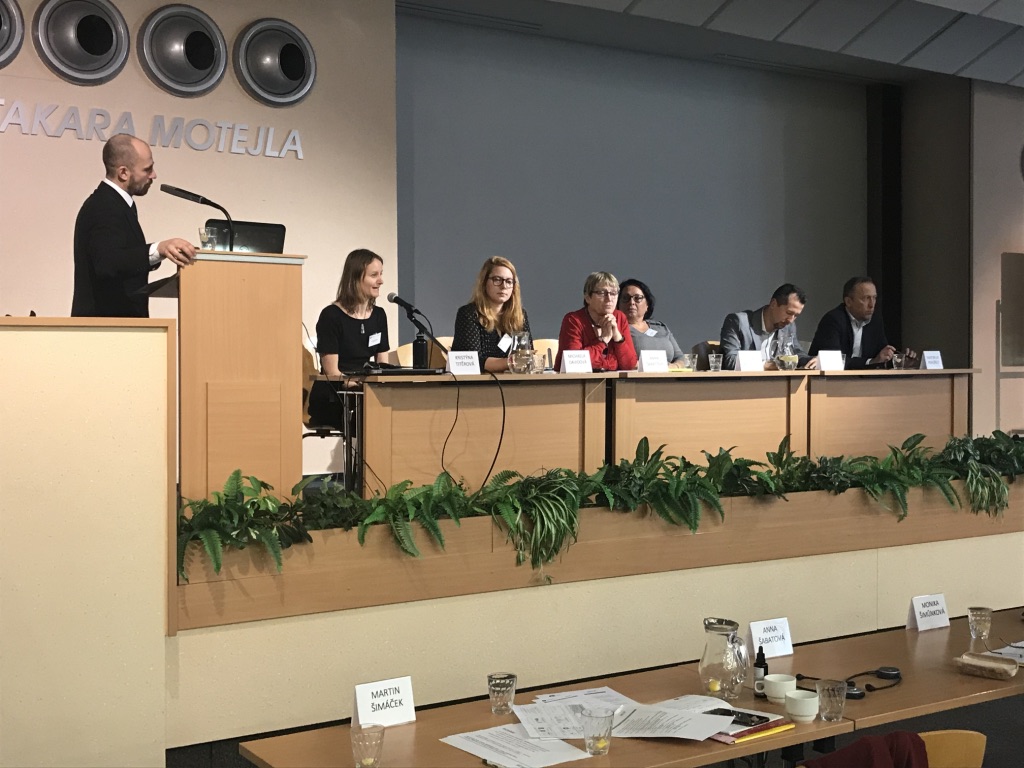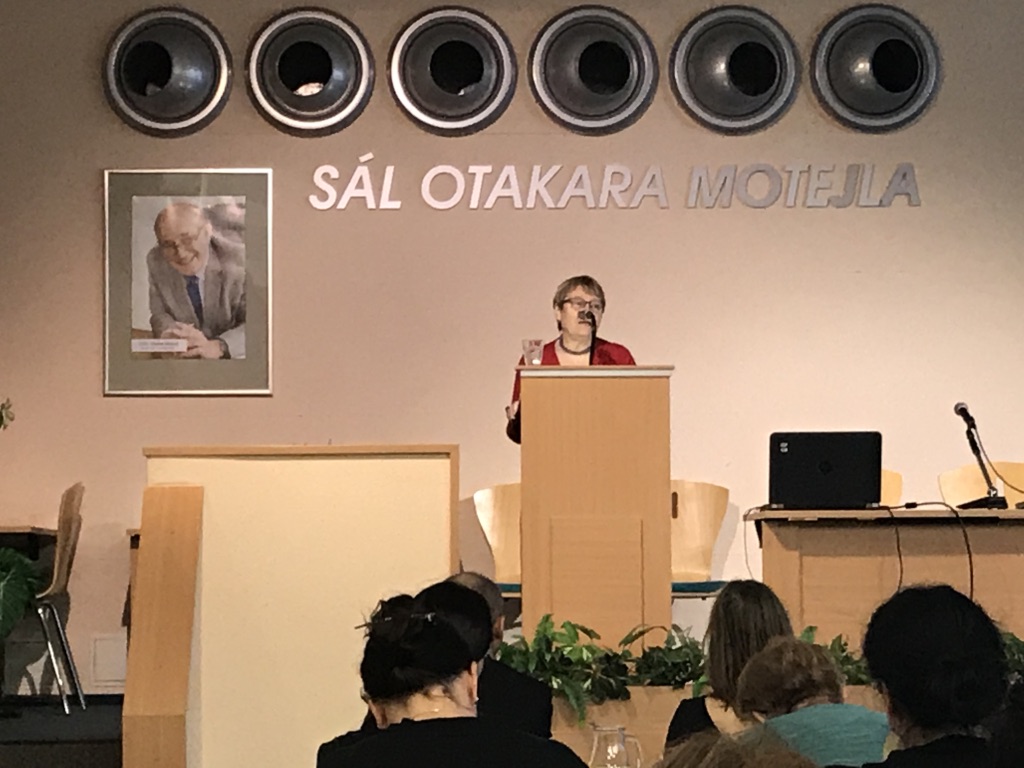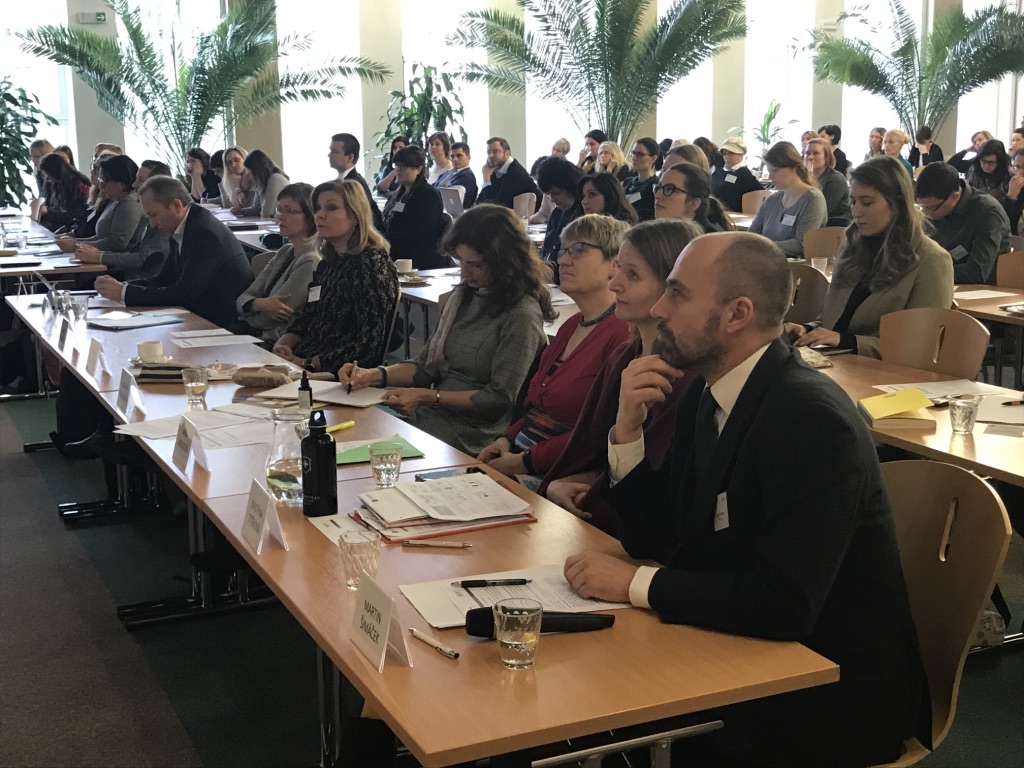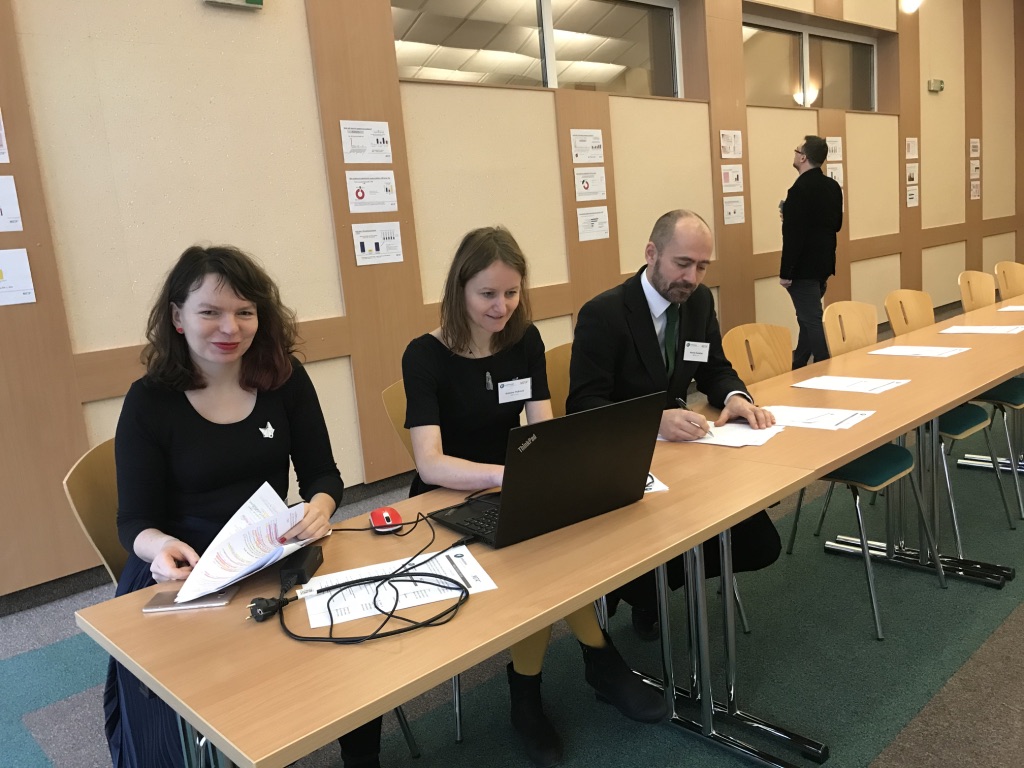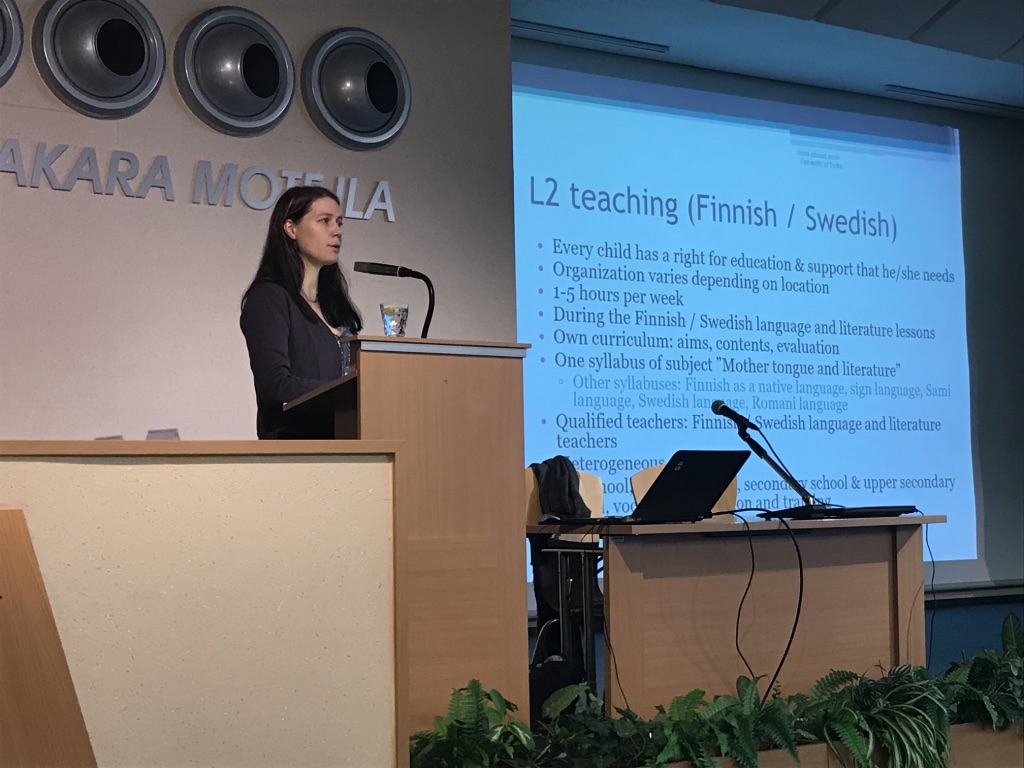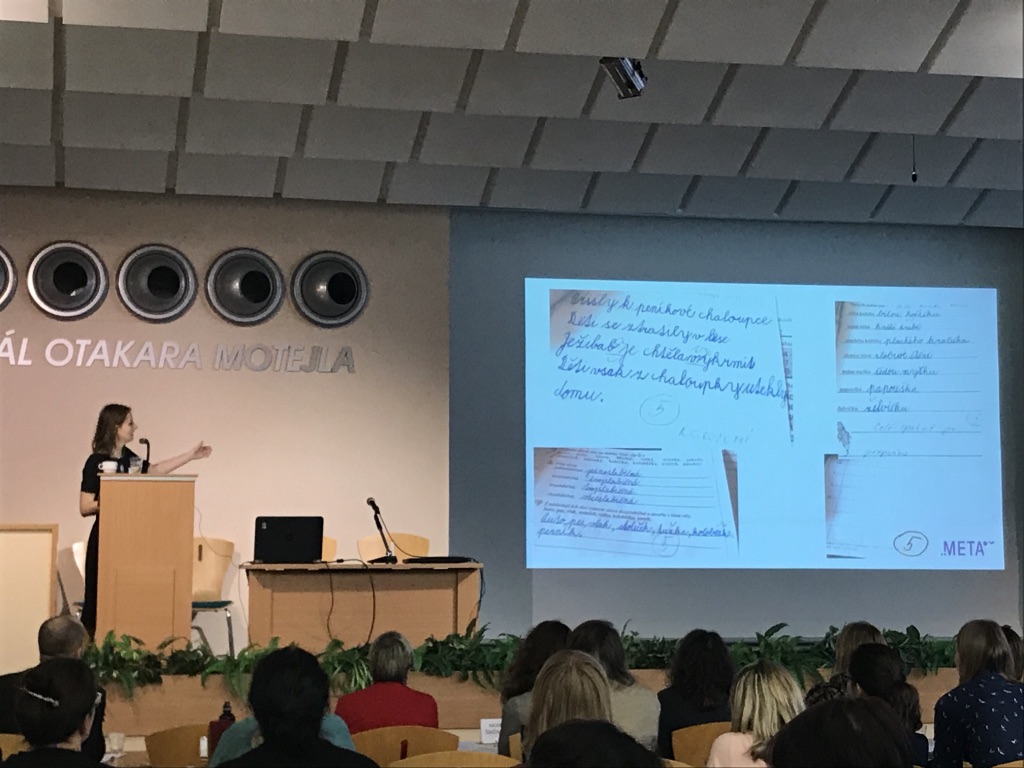Conference in Brno: The education system does not take account of pupils with a different mother tongue (January 2020)
We’ve Moved to a New Office Location
30.7.2019The issue of children with a different mother tongue was widely discussed at an international META conference in May (2019)
24.1.2020pedagogical staff
professional public & media
Volunteers
and internship
pedagogical staff
professional public & media
Volunteers
and internship
Conference in Brno: The education system does not take account of pupils with a different mother tongue
On 21 January, META, o.p.s., in cooperation with the ombudswoman, organised a conference in Brno, concerning the current situation of the education of pupils with a different mother tongue “Neznalost jazyka neomlouvá!?” In fact, the education system is not ready for these pupils, even though the number of such pupils is growing. A concept and support are missing. The meeting with experts was therefore focused on the planned changes in the system of support for pupils with a different mother tongue in education and on the inspiration of good practice abroad.
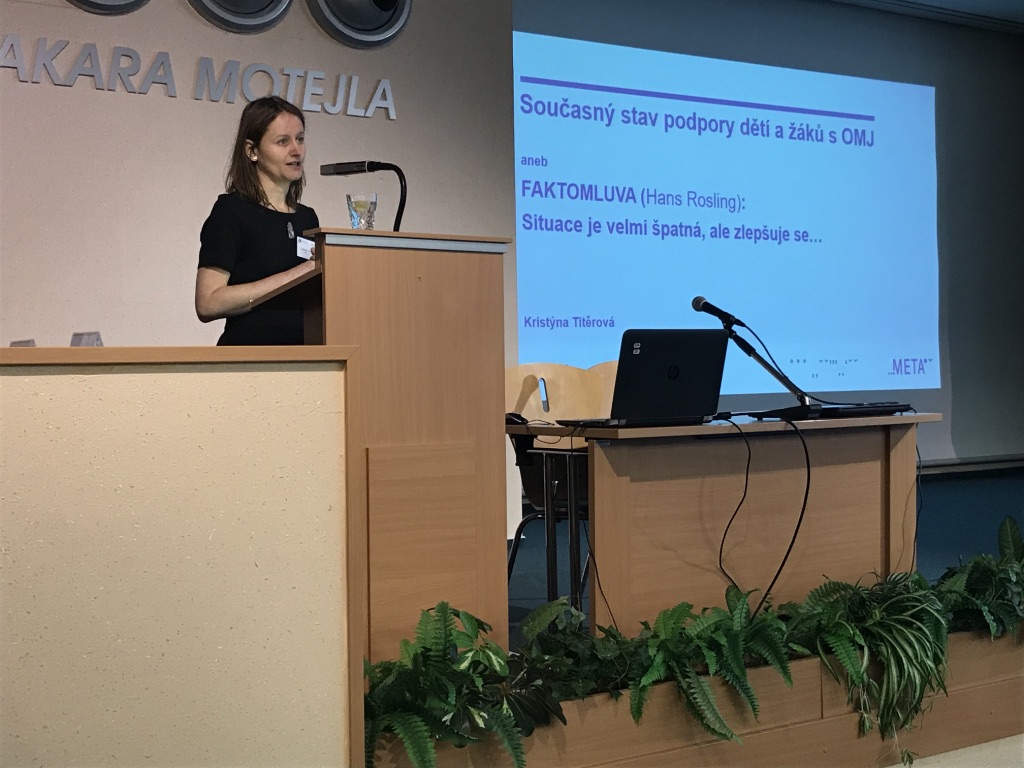
“In Czech schools, the number of pupils with a different mother tongue is growing and the education system is not ready for them. These pupils usually come to schools with partial or insufficient knowledge of the language taught in and they cannot fully participate in lessons, they cannot develop their potential. This therefore needlessly decreases their future contribution to our society,” ombudswoman Anna Šabatová describes. She has been dealing with the topic of education of children with a different mother tongue for a long time and repeatedly warned the Ministry of Education, Youth and Sports about the systemic flaws: “My findings indicate that the education system has not had a clear concept concerning these children for a long time, schools lack support, the content and scope of language preparation of such children is not unified. Education is nevertheless an essential prerequisite of not only children integration, but of the integration of their families into society as well and it will influence their participation in the labour market. The Ministry of Education should finally take this problem seriously.”
But the problem does not concern only primary schools. Last year, for example, the ombudswoman drew the attention of the Chamber of Deputies to the flaws of the regulation of entrance and maturita exams in the Czech language for students with a different mother tongue. She pointed out the significant difference between mastering the language at a communicative level sufficient for communication, education, and most occupations, and between the so-called cognitive or academic language, which is tested during exams. Even talented foreign language students thus receive lower education and find employment with lower social prestige. That can lead to frustration, stigmatization, and result in social exclusion with negative consequences for society, not to mention the unnecessary loss of intellectual and labour potential for society.
The deputy ombudswoman Monika Šimůnková perceives the problem with the education of pupils with a different mother tongue similarly: “Anyone who has ever learned a foreign language knows it is almost impossible to master it like a native in a short period of time. But in our schools, we expect foreign children to do so. It is not right when children are formally not doing well in school just because Czech is not their mother tongue. The Ministry of Education should conceptually address this issue and ensure a functioning system of support for schools. If we do not enable children to receive quality education, we take away their chances for future employment. We deprive not only them, but our society as well.”
META, o.p.s. has been providing foreigners with counselling and support in education since 2006. Since 2009, it has been supporting teachers who educate children with a different mother tongue. “The situation has been unsustainable for a long time now. The Ministry of Education, Youth and Sports needs to ensure, legally and especially organisationally, the right to a language preparation, i.e. an intensive Czech language course, for children entering primary school and for future secondary school students. Such course should have an adequate extent, ranging from one term to a whole school year. The Czech language should be accessible not only to foreigners, but also to children of Czech citizens who do not have a sufficient knowledge of the Czech language due to migration experience. There is a large number of such children in schools and it is very problematic for them to get support. At the same time, it is not sustainable to condition support in Czech by examinations in counselling facilities when there is an obvious language barrier. It unnecessarily burdens the system and, paradoxically, makes it more expensive,” adds Kristýna Titěrová, the Program Director of META.
Documents to download:
Tisková zpráva Vzdělávací systém nepočítá s žáky s odlišným jazykem
Současný stav podpory_META, o.p.s._Titěrová
Nástroje směřující k jazykové podpoře žáků s OMJ v povinném vzdělávání_Národní pedagogický institut_Kourkzi
How to support functional bilingualism and L2 students_Jenni Alisaari_University of Turku, Finland
Vzdělávání dětí a žáků cizinců ve školách_MŠMT_Pohořelý
Osvojo/sites/default/files/l2_learners_in_finland_21.1.pdfvání druhého jazyka_META, o.p.s._Vališová
Read more in the article Znalost češtiny je základním předpokladem akademického úspěchu
Article: MŠMT připravuje významnou změnu v podpoře cizinců, ale opomíjí ostatní děti s omj


